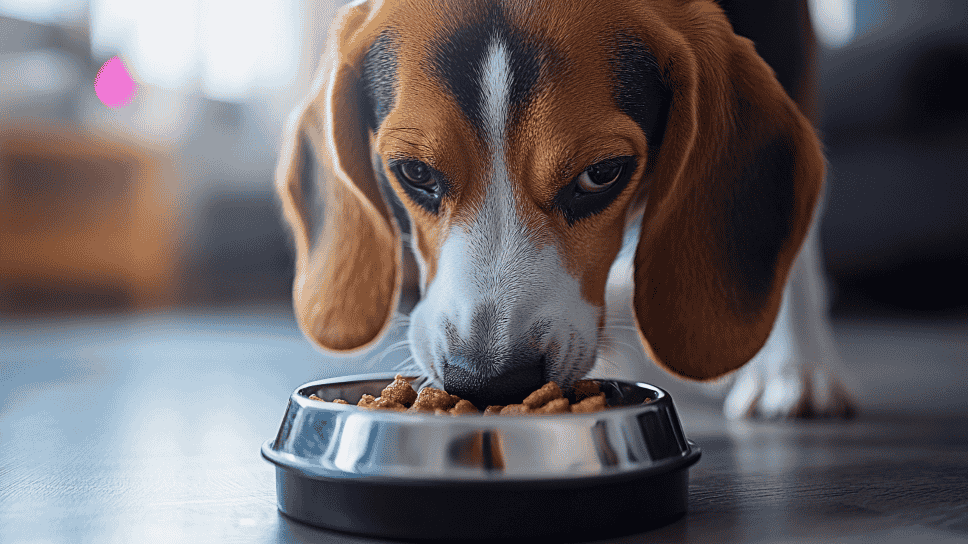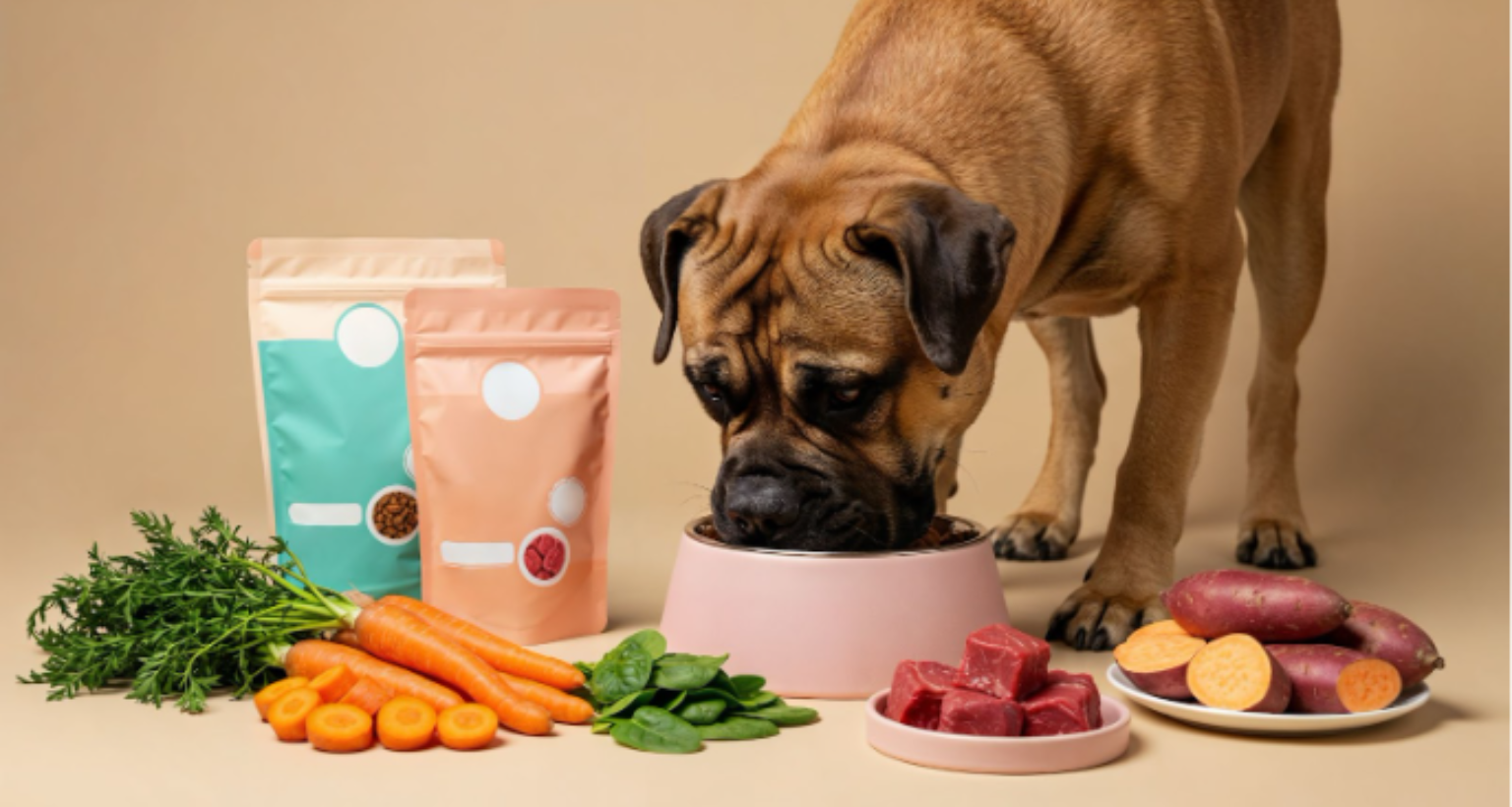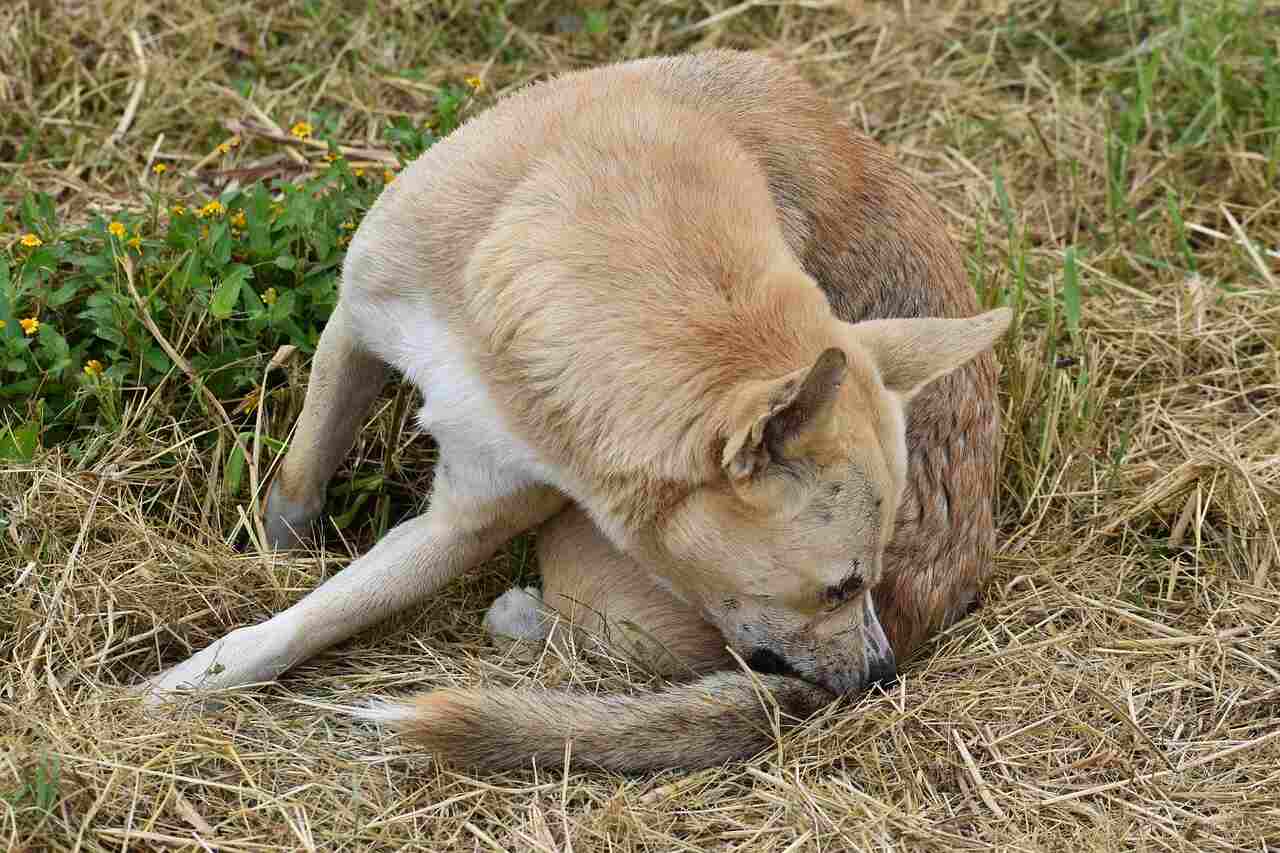For your dog to remain healthy, it’s important to maintain a balanced diet in its meals. Most pet parents often ask, ‘how often should you change dog food?’ In this post, we have discussed the different factors affecting this decision and why you should take it seriously. We’ve also answered questions like ‘should I change my dog’s food?
Read on to learn more on this topic as well as how to avoid bad foods for dogs.
Understanding Dog Nutrition
Just like humans, dogs need a balanced diet to live healthy and perform their daily functions. Depending on age, lifestyle, living conditions, breed and rate of activity, a dog’s nutritional needs may vary. Therefore, it’s important to identify a dog’s nutritional needs and ensure that its meals contain them.
Many pet parents sometimes wonder how often you should change dog food to be certain it gets all the nutrients it needs. If plagued with this question, knowing what works for your dog is vital when feeding your dog. As a canine gets older, meal preferences can change, so do pay attention when contemplating dietary changes. A wrong move can lead to loss of appetite or stomach troubles, or even worse complications.
Reasons to Consider Food Change for Your Dog
Changing your dog’s food typically comes with a reason. It’s not a random decision without cause and one of the questions a lot of pet owners ask is, ‘should I change my dogs’ food’? Here are some important points to consider:
Age & Life Stage
As dogs mature from puppy to adults, their dietary requirements also change. Younger dogs usually need lots of protein while older dogs need more calcium-rich meals to support weakening bones and joints.
Health Concerns
Dogs that are having certain health challenges might require a change of diet to get better. As a pet parent, you might want to ask how often you should change dog food as part of a plan for treatment.
Food Quality
The quality of meals your dog takes might reduce over the years necessitating a change of diet. Bad foods for dogs must be avoided as much as possible. Meals with sweeteners, preservatives, etc aren’t healthy or nutritious for your dog.
Change in Taste
Your pup can wake up and decide to stop eating its meal. If this happens, then a change of food is the only way out.
How Often Can Dog Food Be Changed?
Deciding how often you should change dog food can be influenced by a number of elements. Unless advised by a veterinarian, do not undertake any rash decisions.
Consider these elements before making changes:
Necessity
If it isn’t a necessity, do not change your dog’s diet. Most pups do well with one routine meal at each stage of their lives. If you must make changes, ensure that it is out of necessity.
Digestive Concerns
Look out for any digestive reactions in your dog that might warrant a change of food. If this is the case, consider changing your dog’s meals.
Gradual Change
You may wish to change your dog’s diet according to certain reasons. However, it’s important to do so only gradually. Any rapid changes might end up having an adverse effect on your pup.
How to Change Your Dog’s Food
Changing a dog’s diet should ideally be a gradual thing to avoid overloading the dog’s body. In our experience, below is a guideline on how to get it right:
Begin the process gradually
Slowly but surely mix in the new meal with the old one at a ratio of 1:4 and increase it gradually until the new meal is the only one served. Do not rush the process to avoid needless situations, e.g. rejection of the new food by your pup because it looks and tastes strange.
Check for reactions on your pup’s system
Watch your dog closely to be able to detect any abnormalities while changing up its diet. Any noticeable sign of issues, you may have to stop the diet change to address it.
Speak to a professional vet specialist
If there are questions on how often you should change dog food, avoiding trial and error to seek professional guidance is a good way to go.
Common Food Changing Mistakes You Must Avoid
In a bid to change your dog’s food, these are some common mistakes you’ll do well to avoid entirely.
Regular diet changes aren’t encouraged as it can trigger certain unpleasant reactions in your dog. A disruption in the digestive system of a dog by changing diets can cause problems.
Another common mistake when it comes to changing your pet’s food is neglecting professional counsel from a veterinarian. By virtue of having the experience and skill set as an animal care specialist, listening to your vet should be a priority as regards changing diets.
Certain diets are actually bad food for dogs and must be avoided. It’s important to only go for healthy diets if your dog’s meals need to be changed.
To Sum It Up
Pet care vets will often counsel maintaining a stable diet as a critical factor to keeping your dog healthy. Changing your dog’s food isn’t necessary apart from specific occasions like health concerns or allergic reactions. This approach answers the question – how often should you change dog food – which is, only when needed. Avoid frequent changing of diets as it can disrupt a dog’s digestive system causing avoidable health problems.
Frequently Asked Questions
Is it okay to feed dogs the same food every day?
Yes, it is okay to feed dogs the same food every day as this is a recommended approach according to professional veterinarians. Dogs might be picky eaters but they’ll gladly eat the same meal everyday if they love the taste.
How do I know when to change my dog’s food?
Only change your dog’s food when it starts reacting negatively towards the food. This could be by ignoring the food, experiencing allergies or falling sick after each meal of the same type.
Do dogs get tired of the same food?
Typically, dogs do not get tired of the same food unless something changes in the food or in their system. If your dog is avoiding food, it could be due to an allergy or some other reason. Kindly investigate immediately when noticed.
Is it good to rotate dog food?
No, it’s not a good idea to rotate food for dogs. Changing diets can affect a dog’s digestive health leading to imbalances and nutritional deficiencies. Do not make changes to your dog’s food unless absolutely necessary.
Do vets recommend rotational feeding?
Vet recommends rotational feeding only when necessary due to health concerns or allergic reactions. Otherwise, stick to a particular diet to keep your dogs in good health. If you must change, consult with a veterinarian first.




